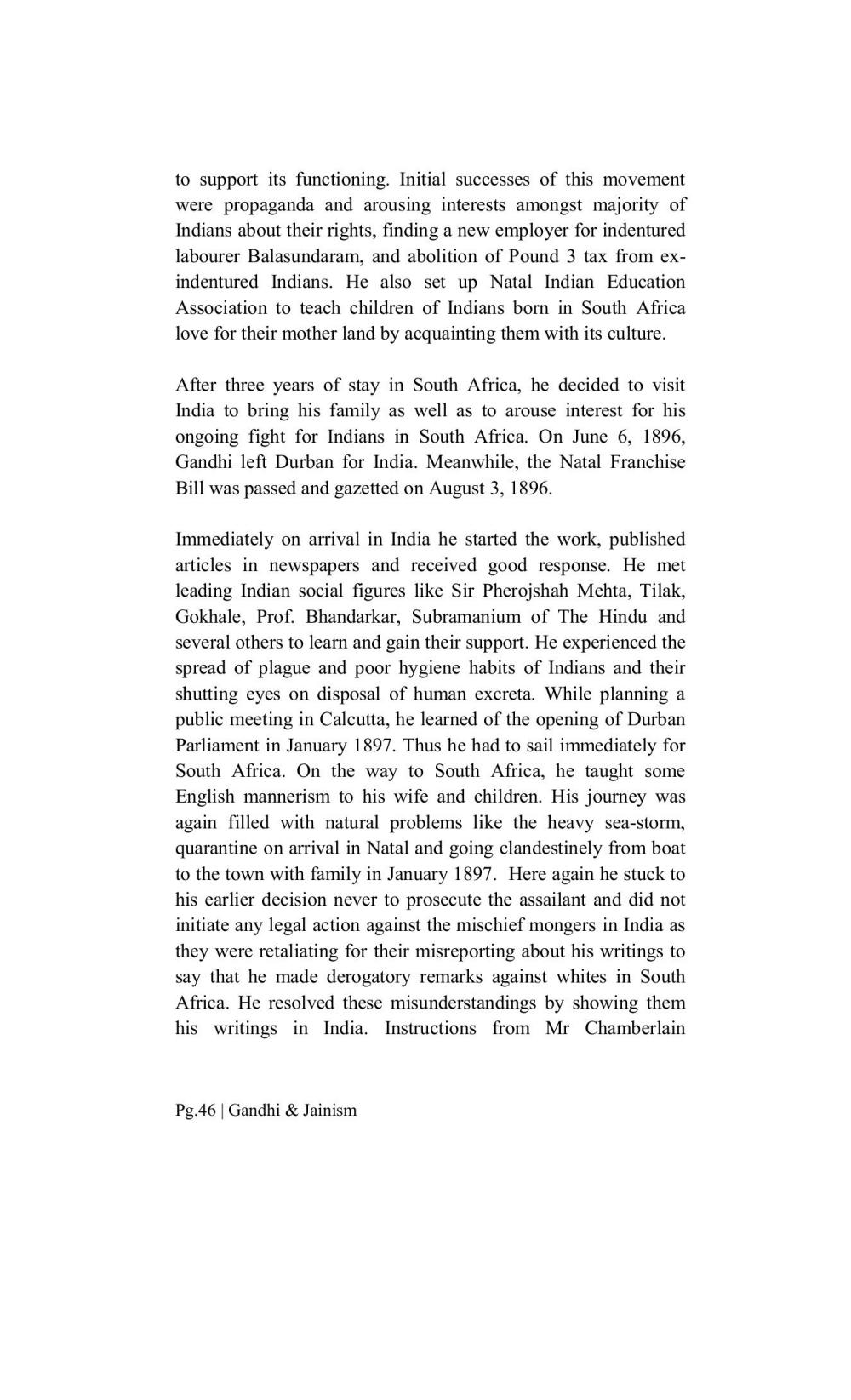________________
to support its functioning. Initial successes of this movement were propaganda and arousing interests amongst majority of Indians about their rights, finding a new employer for indentured labourer Balasundaram, and abolition of Pound 3 tax from exindentured Indians. He also set up Natal Indian Education Association to teach children of Indians born in South Africa love for their mother land by acquainting them with its culture.
After three years of stay in South Africa, he decided to visit India to bring his family as well as to arouse interest for his ongoing fight for Indians in South Africa. On June 6, 1896, Gandhi left Durban for India. Meanwhile, the Natal Franchise Bill was passed and gazetted on August 3, 1896.
Immediately on arrival in India he started the work, published articles in newspapers and received good response. He met leading Indian social figures like Sir Pherojshah Mehta, Tilak, Gokhale, Prof. Bhandarkar, Subramanium of The Hindu and several others to learn and gain their support. He experienced the spread of plague and poor hygiene habits of Indians and their shutting eyes on disposal of human excreta. While planning a public meeting in Calcutta, he learned of the opening of Durban Parliament in January 1897. Thus he had to sail immediately for South Africa. On the way to South Africa, he taught some English mannerism to his wife and children. His journey was again filled with natural problems like the heavy sea-storm, quarantine on arrival in Natal and going clandestinely from boat to the town with family in January 1897. Here again he stuck to his earlier decision never to prosecute the assailant and did not initiate any legal action against the mischief mongers in India as they were retaliating for their misreporting about his writings to say that he made derogatory remarks against whites in South Africa. He resolved these misunderstandings by showing them his writings in India. Instructions from Mr Chamberlain
Pg.46 Gandhi & Jainism




